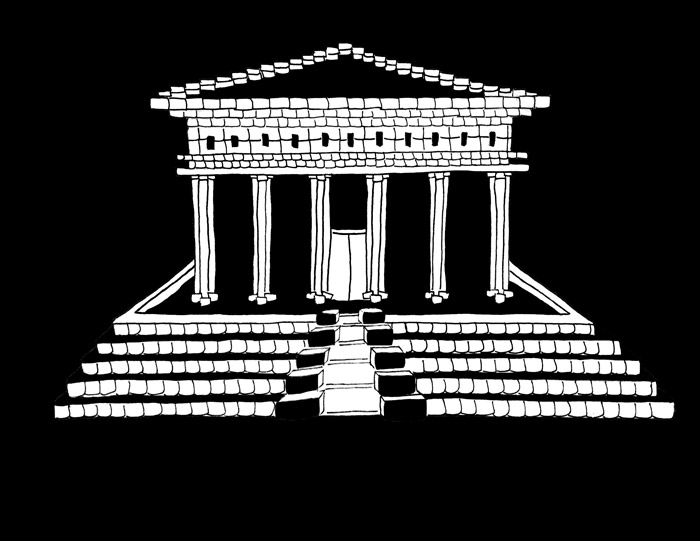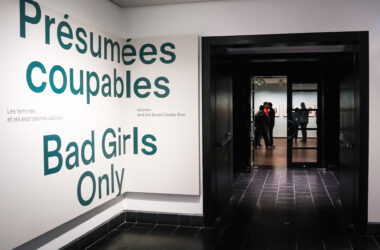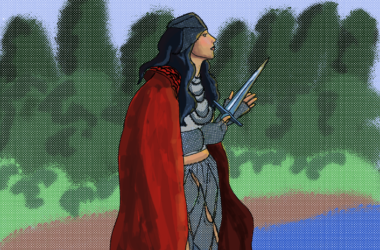In an era where social media sites are dominated by the likes of Farmville, bars and pubs increasingly entice patrons with the prospect of some drunken Dance Dance Revolution, and even the elderly have been swept by the rush of Candy Crush, video games have successfully expanded beyond their niche origins and have permeated society on an intergenerational level. One such area of video game proliferation, however unlikely it may seem, has been the classroom.
Contrary to the lingering notion that video games kill brain cells, an idea that plagued many a Cold War-era household, educators at both the primary and higher levels have started to tap into the unique potential of games for stimulating curiosity and imparting experience in ways that traditional schooling simply cannot. Montreal in particular—through the research conducted by Darren Wershler, associate professor of English and Concordia University Research Chair in Media & Contemporary Literature, and the graduate courses taught by Dr. Christian Ehret, assistant professor at McGill’s Faculty of Education—stands as a pioneer in uncovering these largely untapped rewards games can offer for the classroom and beyond. But what exactly can games offer the classroom, and why do they even need them in the first place?
“I’ve always tried to see if I can use the game as a kind of allegory,” Wershler said. “Can we use the game to teach students how ideology works, or explore concepts such as free will and forced choice? Instead of saying we’re going to take this theory and apply it to game, it’s like turning the telescope around and going the other way. You use the game to tell you something about a larger intellectual question. This kind of approach allows students to end up thinking about things that are of interest to them from other categories.”
As the panic surrounding mid-term/finals season proves, grades and the fear of failure surrounding them constitute one of the defining elements of acquiring an education. Yet that fear is often so palpable that students increasingly run the risk of becoming averse towards the subject material and come to view education through a lens of woe rather than wonder, ultimately hindering their growth. As Lee Sheldon, associate professor and co-director at the Games and Simulation Arts and Sciences program at Rensselaer Polytechnic Institute, articulates in his book The Multiplayer Classroom, the modern classroom directly contributes to this fear of academia through its foundation upon letter grades which are assigned “as penalties for failure,” where students start at 100 and then whittle their score down through mistakes. The tried and tested mechanics used to incentivize player engagement in video games offer an invaluable tool for teachers in combating this fear of failure.
By having students start at an F and then ‘rise up’ in level to achieve an A through ‘Experience Points’ distributed across assignments ‘ranked’ in difficulty, offering unlockable ‘achievements’ in recognition of exceptional accomplishments, and organizing ‘guild’ systems wherein students receive bonus points for helping each other, Sheldon’s case study ultimately showed how the use of such RPG mechanics led students to achieve a higher interest in learning and better grades. Games allow students to move up instead of fall down academically, and, while the grade numbers are practically the same, such a psychological difference is crucial for stimulating the joy and wonder learning is supposed to be all about.
Another common problem many students face, particularly at the earlier stages of education, lies within the concept of transference, where students often feel that the things they learn in the classroom bear little relevance to life outside the classroom.Video games, as amalgamations of so many different fields, stand as one of the perfect teaching mediums with which to show the interconnectedness of class concepts.
“Game studies are always interdisciplinary because games are such weird, fractionating objects,” Wershler said. “You need some insights coming from film studies, digital media, communication theory, literary studies about narrative, philosophy, programming […] you really can’t approach games from a sole disciplinary perspective as you just miss stuff.”
In one of his most successful class projects, Wershler had students studying Plato’s Republic attempt to recreate a utopia within the sandbox engine of Minecraft. Utilizing the game in such a manner ultimately led students, according to Wershler, to both connect with the material in a deeper, more personal way, and have a wider grasp on how these concepts transcend the assignment.
‘Class divisions’ between Minecraft-savvy students and those less so, ecological debates concerning the actual building of the project, and issues of responsibility all were entailed in the fact that the project was so massive it detrimentally “slowed the entire class server to a crawl” for other students.
“Their utopia forced them to think about a whole set of questions that they weren’t aware of when they started, but by the time they were finished were able to think about in the ways philosophers have always approached utopia and dystopia,” Wershler said. “That’s sort of what I mean by games as allegory. When game studies in the classroom work at their best, the game becomes an occasion for thinking about something larger.”
For Ehret the commmunity surrounding the game is more important than the content.
“Video games, regardless of the content, create opportunities to learn differently than other platoforms: Open world games, for example, teach players how to grapple with new languages, symbiotitc codes, like icons, and ways of talking to each other that are different from the communitication of everyday life, but also transfer to other areas of your life,” Ehret said. “So when we talk about literacy now, we talk about multiple literacy, so you might know standard english, or standard french, but can you switch between all of those various discourses, and do so adjunctively? Video games are one of those types of languages, or discourse communities, and kids learning and talking in those areas have a lot of transerfable skills to academic writing.”
Perhaps one of the most powerful areas in which games can uniquely impact students in the modern classroom is in their sense of agency. Student agency refers to the sense, or lack thereof, of how much control students feel they have over their studies and how much they perceive their academic choices, whether choosing classes or picking a university, to be meaningful choices they can actually make. It has become a common trope that kids within the public school system increasingly feel that college is out of their grasp, or that they’re ensnared in whatever pre-determined plan was set out by their parents, and thus can’t meaningfully change their lives or the community around them. When agency dwindles, so too does student motivation. School, once again, begins to foster the very sentiments that turn students away from it. Video games, a medium all about action and ‘doing,’ stand as one of the best ways to empower students and make them believe their choices matter.
Ehret has conducted extensive research on the social impact of video games, and his experiences powerfully demonstrate the potential games have to impart the notion that kids can impact their communities.
“A Minecraft club at the Nashville Public Library was created for the specific purpose [of] redesign[ing] and reimagin[ing] areas of the city that were currently dilapidated or home to underprivileged communities, and to think about how to design them for ‘spatial justice,’ with more mobility between communities, green spaces, and community gardens in mind, and to think about all those things that would create more fruitful communities,” Ehret said. “The kids involved became like urban planners in Minecraft and reimagined those spaces and actually rebuilt them according to their imaginings together and presented it to local city planners. Those sandbox games like Minecraft provide at least two big potentials, one for us to harness kids’ expertise in games, but also to reimagine, with and alongside kids, not as experts ourselves, potential projects for social justice.”
While implementing video games and their mechanics in schools is certainly not devoid of challenges, the positive changes they bring to the classroom to make them a necessary force in the 21st century school system. If the curiosity that is supposed to at the foundation of education is to be rekindled, there needs to be a move away from a system of based on moving down, and focus on levelling up.









